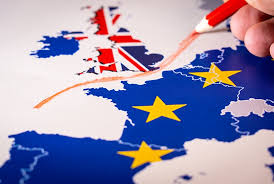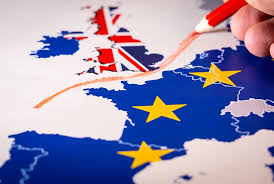
British farmers what the government to impose import tariffs on eggs, some dairy products, horticultural products and grains in case of the United Kingdom having to leave the European Union without a trade agreement. This demand was made to the British Prime Minister Boris Johnson by the Britain’s National Farmers Union in an open letter.
In the case of a no deal Brexit, it is expected that exports of British agricultural products would have to face tariffs by of the EU. However the then UK government under then Prime Minister Theresa May had said in March this year that it wanted to completely remove tariffs on many imports which included some dairy products and agricultural products so that the so called hard border with Ireland after Brexit could be avoided.
“There is no indication that such an arrangement will be reciprocated by the EU and there is nothing in practical terms to stop this trade becoming an open gateway for all EU goods entering the UK duty free,” NFU president Minette Batters said in a statement.
She said that there would likely be a surplus of domestic products on the UK market if there is an export tariffs on agricultural products. And on the other hand, there would be a downward pressure on the price of the agricultural products of domestic producers because of low or no import tariffs on agricultural goods.
The plan of the UK government of not to imposing any tariffs on the land border with Ireland has also been urged to be reviewed by the farming group in its letter, in the eventuality that the UK is forced to leave the EU without a deal at all.
Batters said that any exit from the EU must be smooth and orderly and it would be a disaster for British farming if there is a no deal Brexit.
“If we leave without a deal the sudden change in our trading relationship with the EU will have severe impacts on the UK food and farming sectors, not least due to the tariff treatment of both imports and exports,” she said.
In order to reduce the potential damage that a no-deal Brexit would inflict on UK farming, there was need for the government to revise its tariff regime, Batters said.
“It is also important that government manages prices for the public in a no-deal scenario - these tariff arrangements will have little impact on retail food prices yet could have a massive impact on the viability of farm businesses,” she said.
(Source:www.cnbc.com)
In the case of a no deal Brexit, it is expected that exports of British agricultural products would have to face tariffs by of the EU. However the then UK government under then Prime Minister Theresa May had said in March this year that it wanted to completely remove tariffs on many imports which included some dairy products and agricultural products so that the so called hard border with Ireland after Brexit could be avoided.
“There is no indication that such an arrangement will be reciprocated by the EU and there is nothing in practical terms to stop this trade becoming an open gateway for all EU goods entering the UK duty free,” NFU president Minette Batters said in a statement.
She said that there would likely be a surplus of domestic products on the UK market if there is an export tariffs on agricultural products. And on the other hand, there would be a downward pressure on the price of the agricultural products of domestic producers because of low or no import tariffs on agricultural goods.
The plan of the UK government of not to imposing any tariffs on the land border with Ireland has also been urged to be reviewed by the farming group in its letter, in the eventuality that the UK is forced to leave the EU without a deal at all.
Batters said that any exit from the EU must be smooth and orderly and it would be a disaster for British farming if there is a no deal Brexit.
“If we leave without a deal the sudden change in our trading relationship with the EU will have severe impacts on the UK food and farming sectors, not least due to the tariff treatment of both imports and exports,” she said.
In order to reduce the potential damage that a no-deal Brexit would inflict on UK farming, there was need for the government to revise its tariff regime, Batters said.
“It is also important that government manages prices for the public in a no-deal scenario - these tariff arrangements will have little impact on retail food prices yet could have a massive impact on the viability of farm businesses,” she said.
(Source:www.cnbc.com)














